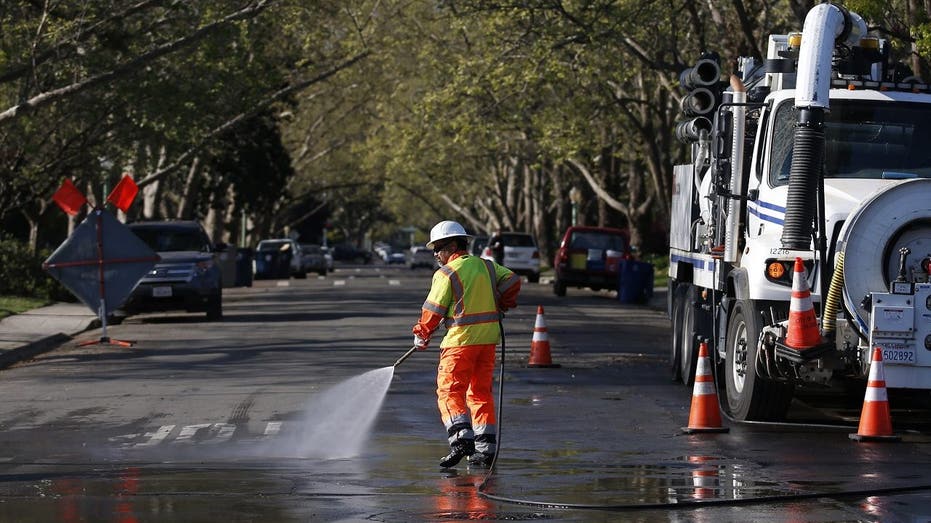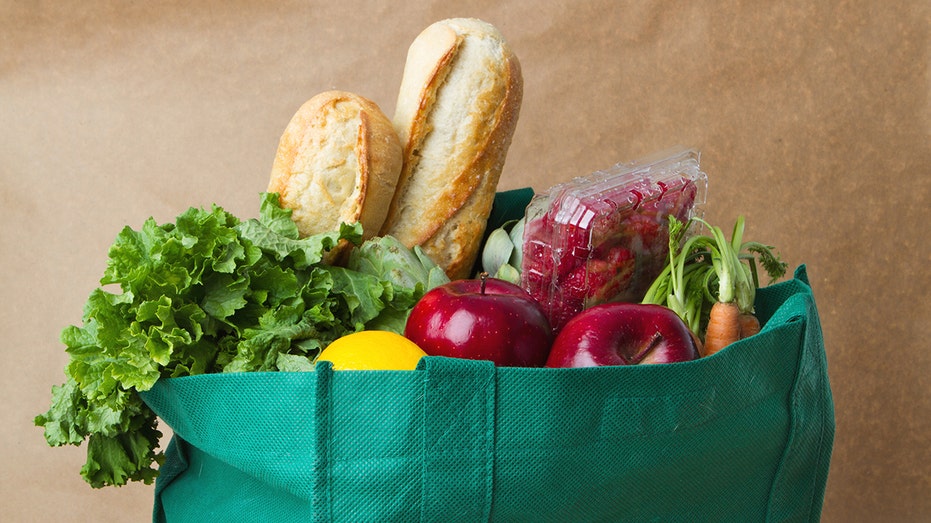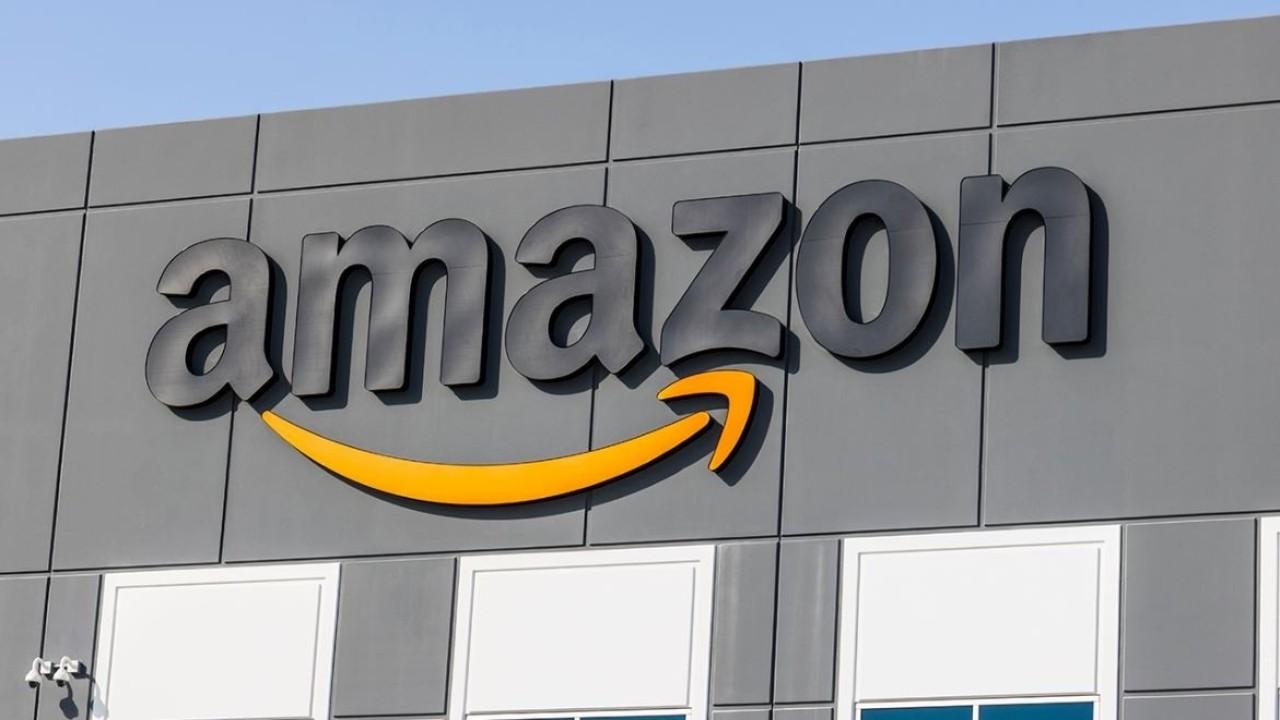Coronavirus has not closed these businesses: Banks, telecom providers stay open
Businesses are making changes and carrying on
The coronavirus pandemic that has caused many businesses to temporarily close has not taken a complete toll on animal hospitals, banks and other establishments.
In order to stem the tide of the virus, dine-in restaurants and many retail establishments have shuttered, but other businesses are making changes and carrying on.
TRUMP TOUTS AUTOMAKERS FOR ASSISTING VENTILATOR PRODUCTION: LET'S 'SEE HOW GOOD YOU ARE'
For example, mobile carrier AT&T announced Sunday that it is waiving domestic wireless plan overage charges for the next 60 days after closing many, but not all, of its locations.

Sacramento City Utilities worker Henry Escudero, wash down a street after repairs were made to a water line in Sacramento, Calif., Friday. (AP Photo/Rich Pedroncelli)
Telecommunications
AT&T's waiver will apply to residential or small business wireless customers who incur overages because of economic hardship related to the coronavirus pandemic.
Another company keeping people connected, internet and television provider Charter Communications/Spectrum, says it won't terminate service for individuals and small businesses facing hardship because of the pandemic. Spectrum is encouraging customers to stay away from its stores if they have any flu-like symptoms.
Banks
National and local banks are adapting to the coronavirus pandemic by asking patrons to make appointments, going drive-through only and even closing down locations as they continue to operate.

iStock
Banks such as JPMorgan Chase and Citibank are also encouraging customers to use their mobile apps and to make payments online whenever possible as certain branches may be closed due to the outbreak. However, ATMs will still be in operation.
California and Illinois are currently under shelter-in-place orders calling for residents to stay indoors barring a specific, justifiable reason during extenuating circumstances. Shelter-in-place orders vary from place to place, and in California trips to the bank are not barred but are discouraged.
Gas stations
Gas stations are considered an essential service and will continue to run during the pandemic. However, the oil and gas corporations are doing their part to ensure the safety of its customers and staff.
Laundromats
You might not be able to blame smelly clothes on the coronavirus pandemic as many states have deemed laundromats essential (meaning they'll be asked to stay open) while other establishments must close.
Marijuana dispensaries
Marijuana dispensaries, still illegal in some areas, have been deemed "essential" in Los Angeles County and other municipalities where it's sold as a health care product.
California Gov. Gavin Newsom's "Safer at Home" order, imposed Thursday, allows such businesses to keep operating and as a result, many dispensaries are experiencing a boom.
Shipping and mailing services
Not only are two of the largest global courier delivery services still operating, but the companies have also utilized their workforces in the battle against the global pandemic.
UPS increased its safety procedures while continuing to deliver packages. Although the customer still needs to verify their name when their package is delivered, they no longer need to sign for the package. Many of its Access Point locations are continuing to operate to receive and deliver mail, the company tweeted. Customers can check the UPS Global Locator to find the nearest available active location.
FedEx says its team members are working around the clock in response to the global pandemic. The company is working in coordination with the U.S. government to support testing centers across the country by shipping critical supplies and test kits.
Animal hospitals
Some veterinary hospitals also are remaining open. Many are taking extreme measures recommended by the American Veterinary Medical Association to help stop the spread of the novel coronavirus, such as curbside service, postponing elective surgeries and preserving medical supplies.
For curbside service, pet owners remain inside their vehicles in the hospital parking lot while pets are brought inside by hospital staff. Communication is typically done by phone or through a cracked vehicle window. Some doctors, like Dr. Sara Starkey of Toledo's Shoreland Animal Hospital told ABC 13 that they will even do the exam in a pet owner's car.

Veterinarians are postponing elective animal surgeries because of the coronavirus crisis. (Stock)
"We always do car exams if there's something contagious the pet has like a kennel cough or the doggie flu, but now we are extending that out to people that don't even want to come in the building. We will do them in the parking lot, we'll take medication out to the parking lot, mainly so people aren't cross contaminating," Starkey said.
Food banks
Food banks across the country are also open for business as the need for food assistance continues to grow and many are being laid off from their jobs. Many are adding mobile or drive-through options wherever possible and are even considering teaming up with the National Guard to pack and deliver food to those who can’t leave their homes.
DEMOCRATIC LEADERS CRITICIZE GOP’S CORONAVIRUS RELIEF BILL AS TOO PRO-BUSINESS
In addition, food banks are working with meal programs to minimize the risk of spreading the disease by scheduling appointments and suggesting that only one member of the household visit the pantry or distribution site in order to decrease the number of people congregating in one place.
Nonprofit Feeding America has also launched a national food and fund-raising effort using the COVID-19 Response Fund to support people facing hunger and the food banks who help them. This includes building an inventory of emergency food boxes and distributing them to member food banks across the country, as well as working to get incremental funding to support other anticipated costs.

Food banks need donations now more than ever.
"Our first priority is the millions of individuals, families and seniors who rely on food banks for help," said Feeding America CEO Claire Babineaux-Fontenot. "Our member food banks are always there to help throughout the year and in times of disaster. This fund will advance their ability to respond efficiently and effectively in their communities so that food is not added to the list of worries for families during this pandemic."
"We cannot do it alone," Babineaux-Fontenot added.
CLICK HERE TO READ MORE ON FOX BUSINESS
If you or someone you know has any leftover food or is interested in volunteering, you can donate to the fund or go on your local food bank's website.
This list will be continually updated. Check back for the very latest.





















